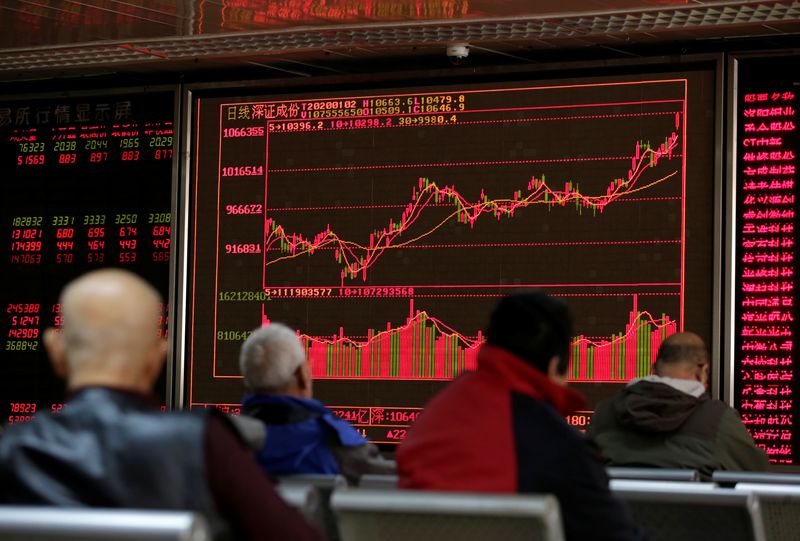
By Ankur Banerjee
SINGAPORE (Reuters) – As China and the U.S. battle over tariffs, locked in a tussle that could result in a deal or a trade war between the world’s two largest economies, staying away from China’s stock market is becoming the default option for foreign investors.
The Chinese stock market, already reeling from investor worries over where the economy is headed and disappointment at Beijing’s effort to stimulate growth, returned from a week-long break with a muted reaction to the trade dispute.
While the 10% U.S. tariffs imposed on Tuesday fell far short of President Donald Trump’s campaign threats, and China’s tit-for-tat measures were seen a modest, analysts said the subdued market fall suggested investors may be taking a more measured response to trade war fears than in Trump’s first term in office.
Conflicting reports on Wednesday over whether and when Trump and Chinese President Xi Jinping would talk and a sudden halt on the U.S. accepting postal packages from China – which blindsided e-commerce stocks – highlighted the pitfalls investors want to avoid.
“I will take the more safe approach right now and not fight the tariffs,” said Francis Tan, chief strategist for Asia at CA-Indosuez, who is advising his clients to rotate into bonds as they provide a good buffer to hedge against downside in the equities.
“The level of uncertainty has increased because, while they are showing their hands, no one knows if the actual trade war game has begun or when it will come.”
Global investors were already wary about China’s growth prospects due to concerns over its protracted property crisis, deflationary pressures and the lack of follow-through on Beijing’s promises of stimulus.
In the past three months, foreign investors have pulled nearly $12 billion from China-focused funds, according to LSEG Lipper data, all but reversing October’s inflow of $13 billion.
The lumpy flows point to profit-taking and a lack of sticky capital that is going to keep flowing to China for the long-run.
“I think that a lot of people say that China’s waiting for Trump and they’re going to have all this kind of stimulus to roll out. I don’t really believe that,” said Sat Duhra, portfolio manager for Asian dividend income at Janus Henderson.
“We don’t really want to add anything to China because we seem to have got it okay at this point… adding anything else should probably present a lot more risk.”
TRADING TRADE WAR
Relatively muted price moves also point to a market braced for trade conflict and unwilling to gamble on the outcome, which analysts say is going to be more complicated to sort out than Trump’s deals with Mexico and Canada.



